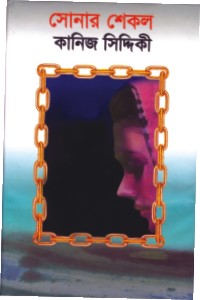|
Book
Review
 More
of a son than a Lover More
of a son than a Lover
Jane
Stevenson
DH Lawrence: The Life of an Outsider
John Worthen
There
was a time when anyone who read Eng. Lit. at all had at least
read Lady Chatterley's Lover, but now it is the end of the
Chatterley ban and not the book itself, which marks an epoch.
Profoundly estranged from the literary establishment of his
own time, between the Fifties and the Seventies Lawrence provided
a model of genius which was highly convenient to male writers,
and shaped such creations as Jimmy Porter in Look Back in
Anger and Jack Torrance in The Shining. After which, the women's
movement came along and trounced the entire enterprise.Lawrence
has been purged from the new canon on grounds of sexism (and
racism). Worthen does a good job of contexting the apparent
racism, but the sexism is a more complex issue. After the
death of his could-do-no-wrong elder brother, Lawrence became
mother's boy, and one of the things about men who have had
that particular experience is that in their subsequent relationships
with women, they are apt to take it for granted that their
own emotional welfare is the overriding concern of both parties.
Lawrence felt entitled to supersede his father, use up and
ultimately to reject, his mother, and then to maintain a series
of profoundly exploitative relationships with other women.
It was in the nature of his achievement as a writer to draw
on his relationships, reflecting them through the powerful
but distorting lens of his own ego, and it is unsurprising
that this angered and distressed most of those who had loved
him.
However,
one issue which Worthen curiously neglects is Lawrence's religious
formation. Lawrence was not just 'nonconformist', he was a
Congregationalist, and thus the heir of a socially vital but
theologically terrifying tradition which argues for the damnation
of the entire human race apart from a minute band of perfected
'saints'. Lawrence repudiated the doctrine, but kept the spiritual
arrogance, which helps to explain why he envisaged 'losing
nine-tenths of my few remaining friends' over Lady Chatterley
with such equanimity.
He declared,
characteristically: 'We can go wrong in our minds. But what
our blood feels and believes and says, is always true.' This
is the discourse of radical religion, guided by inner sendings;
though it was sex, not God, he turned to for transformative
experience.
But the
prophet of transforming sexuality was a late developer. After
a series of tormentingly tentative relationships with socially
aspirant female counterparts to himself, he fell for the first
aristocrat to cross his path. Frieda von Richthofen had the
confidence generated by a privileged upbringing. She enjoyed
sex, loved her children, and was freedom-loving, habitually
unfaithful, and shrewd. Lawrence was in flight from English
social mores, so the fact that she was German may also have
helped, since there were many aspects of Englishness she neither
knew nor cared about.
Worthen
seems to go along with Lawrence's view that he was too ready
to give way to Frieda's demands to be loved. But Lawrence
forced Frieda, born, it would seem, to be a lover and a mother,
to make wifehood her sole occupation; so it is small wonder
that she demanded his exclusive attention.
Worthen
writes as sufficiently a partisan of Lawrence's viewpoint
to describe Frieda's excruciating pain over her loss of her
children to vengeful English divorce laws as 'silliness',
and to condone Lawrence's total failure of sympathy.
His attitude
towards Frieda's children suggests that he fundamentally perceived
them as rivals, and Frieda's own tolerance for his behaviour
seems to imply that she had grasped its implications.
Lawrence,
Worthen asserts, did not want 'mothering', and in the way
that he means, this is clearly true, but at the same time,
Lawrence required women to be alertly respectful of his changing
needs without regard to needs of their own, and became enraged
when they didn't.
One practical
question which goes unexamined in this book, which is otherwise
stunningly comprehensive, is what Lawrence did about contraception
after his marriage (condoms were a feature of his early affairs).
Lawrence was absolutely committed to divorcing sex from parenthood:
'The great relationship, for humanity, will always be the
relation between man and woman. The relationship between ...
parent and child, will always be subsidiary.' How very much
he must have wished that to be true. But Frieda was a fecund
woman of abundant vitality, and she was also slapdash and
impatient; it's hard to envisage her in the context of a cautious
routine of rubber preventatives.
What is
left, now the dust has settled? A handful of wonderful poems,
some outstanding travel writing, and a collection of novels
which now seem strangely hard to read. One illuminating fact
which Worthen brings out is the speed at which Lawrence composed:
2,000-3,000 words a day. It is unsurprising that some of his
writing now seems under-edited.
It is
hard to take Lawrence's preachings about 'phallic tenderness'
seriously, other than as a reflection of the deep-rooted fears
evoked by the first phase of the sexual and economic emancipation
of women. He is the ultimate spokesman for a particular type
of male personality, so defended against a devouring mother
that he is crippled by fear of commitment.
This
review was first published in the Guardian
 Shonar
Shekol Shonar
Shekol
Kaniz
Siddiqui
Kakoli Publishers, Bangladesh, 2004
Reviewed
by Elora Halim Chowdhury, Assistant Professor of Women's Studies
at University of Massachusetts, Boston s
Kaniz
Siddiqui's first novel Shonar Shekol is about experiencing
"womanhood" in contemporary urban Bangladesh. She
engagingly weaves readers through the protagonist Meera's
adolescent dreams, family obligations, violence of marriage
and then loneliness and conformity of widowhood, and finally
experiences in love and self-actualisation.
An obedient
daughter of protective parents, Meera is unable to voice her
reservations in being married off at 16 to Habib, a self-made
successful businessman more than twice her age. Habib is the
eldest son with attendant responsibilities in a large family
and Meera soon has to learn to negotiate her newfound roles
as wife and domestic proprietor. Although she is encouraged
to continue her studies through college and university, it
is made clear by both Habib and his mother that her real duties
lie in taking good care of her husband and the household and
eventually bearing and rearing children. As the initial romance
and novelty begin to wane in the marriage, Meera becomes increasingly
restless and discontent. Her attempts of forging friendships
with Habib's younger male cousins are misconstrued as illicit
by Habib who in fits of jealous rage subjects Meera to violence
and sexual assault. Meera finds empathy and solidarity with
the most marginalised in the household -- Habib's poor relatives
from the village, and the maid who has been sexually molested
by her brother-in-law. Yet, that is declared unacceptable
behaviour for someone of Meera's status --symbolically the
"lady" of the household, but ironically with little
power. Unable to find support from her own family or Habib's,
a dejected Meera accepts her lot and retreats into a cocoon
focusing intently on raising two sons.
When Meera
is 40, Habib dies of cancer leaving all of the family wealth
in the hands of his younger brother. In the absence of her
in-laws Meera moves in with her parents to a lonely, rigidly
defined existence as a widow. The entrance of Ajay, on old
friend from university days -- open-up doors to new opportunities,
alliances, and imaginations -- disrupting the routine and
predictability of long and solitary days. Meera rekindles
old friendships, makes new ones, asserts her individuality
and realises unfulfilled dreams. Ajay introduces her to his
intellectual and politically- minded friends at a local newspaper
where Meera is reacquainted with Fatema, a childhood friend,
who is now an established columnist. She begins to imagine
a different world.
Meera
returns to the home she had made with Habib yet shunned after
his death and slowly rebuilds a haven for herself on the rooftop
apartment surrounded by planters of rose bushes. As Ajay prepares
to return to America, to his job and wife, he and Meera realise
the beauty of their momentary union yet with limitless and
freeing consequences. Meera pours her heart and soul to writing
about women's lives as she herself comes to grips with her
own multi-faceted desires, experiences and aspirations. Siddiqui's
novel is a richly descriptive and moving account of the complexity
of being a woman in a patriarchal society, which determines
women's positionalities around a set of narrowly defined roles.
Meera's mother who is worried about her daughter's resistance
to an abusive husband, and then friendship with a Hindu man,
her aunt who is so complacent in her financial privilege and
moral superiority so as to freely hand out placatory advice
to Meera on being patient and submissive, Fatema, her colleague
and friend, who has made peace with her husband's abandonment
and found meaning in a fulfilling career; Saira, Meera's aggressive
sister-in-law, who defies stereotypical notions of femininity
among the many female characters in the book depict the range
of what it means to be a woman across divides of age, class,
and social status. Together they represent a spectrum of victimisation
and disempowerment as well as empowerment and resistance experienced
by women in society. That which divides women, disallows them
from uniting as women yet connects them through gendered oppression.
Yet, Meera's self-assertion and agency leaves the readers
with a sense of triumph. Ultimately, the novel reflects the
complex and often contradictory realities of women. By taking
the experiences of ordinary women's lives seriously, Siddiqui
exposes the oppressive social, economic and cultural climate
and institutions within and against which women must survive.
Copyright
(R) thedailystar.net 2005 |
